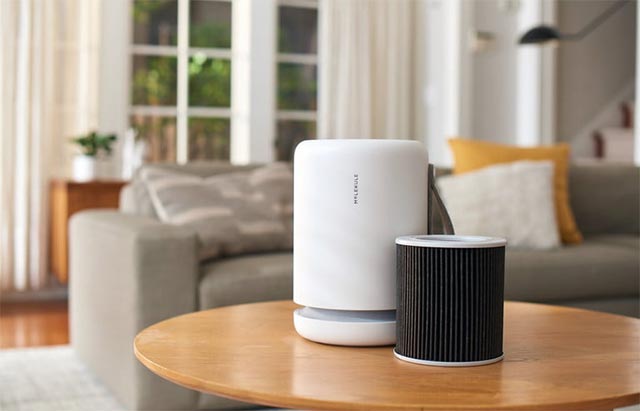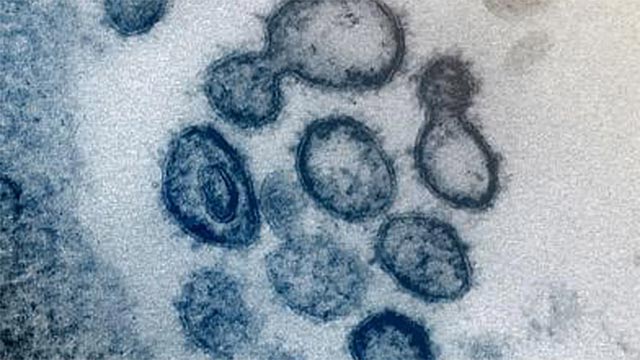Can air cleaners protect us from the Corona virus?
The pneumonia epidemic caused by the new strain of Corona virus, also known as COVID-19, has become a worldwide concern at the present time. WHO has had to declare a global emergency, while the number of new outbreaks is increasing and there is no sign of it being controlled. In the face of complicated complications of the epidemic, people everywhere are rushing to look for equipment that can protect themselves from viruses. Because this new strain is spread through the respiratory tract, most people choose masks, disinfectant hand sanitizers, but there are also those who seek air purifiers to improve indoor air quality and prevent block the spread of viruses.
Can air cleaners stop viruses?
The answer is NO! The air purifier is primarily designed to filter one or more air pollutants, not to kill or prevent viruses like Corona, simply because the standard HEPA filter on the air purifier is now now completely unable to capture viruses because they are too small in size.
Even in the case of advanced PECO filters. This filter can capture small objects equivalent to the size of a large virus. But in the case of Corona virus, this is not much of an effect because the virus can stay on the surface for a limited period of time instead of floating in the air.

Air cleaners and viruses from a scientific perspective
The mechanism of operation of the air purifier is quite simple: Use a fan to draw air and pass it through the filter before pushing pure air to the other side. They are particularly effective at removing odors and particles floating in the air. However, there is no requirement for the kill rate of viruses or other pathogenic microorganisms.
Even the most advanced air purifiers today can only capture particles up to 0.1 micron in size, in the majority of common household air purifiers that only filter particles up to 0. , 3 microns or larger (1 micron is equal to one millionth of a meter).
The main culprits that affect indoor air quality are often greater than this size limit: Mold, pollen and pet dead skin . so they are all easily captured and removed with standard HEPA filters. standard.
However, the virus is different. They are about 100 times smaller than bacteria and usually range from 0.004 to 0.1 micron. This means that even the most powerful air filters will struggle to remove viruses from the air.
COVID-19 belongs to a family of viruses called Corona, and according to the WHO, the size of an individual COVID-19 is only about 0.125 microns - too small compared to the filtration capacity of the majority of air filters. gas.

Currently on the market there are 2 main types of air filters: HEPA (High, Efficiency, Particulate, Air) and PECO (Photo Electrochemical Oxidation). HEPA filters are made from a fabric that functions similar to a mesh. The air drawn through the fabric by a fan and particles sized in the above range will be trapped, while clean air will escape to the other side. Over time, particles will accumulate on the fabric, which is why filters must be replaced periodically.
The PECO filter also works the same way, but is a bit more complicated. First, the air passes through a filter containing carbon molecules, then continues through another filter that combines with ion molecules and is 'suppressed' here.
Which is better for HEPA and PECO? Patrick Van Deventer, product manager of Trane Indoor Air Quality, said: "According to the EPA, HEPA filters are not much better than air filters with average efficiency with a MERV rating of 7 to 13. They are also very limited and therefore have limited air supply, so they are often used in smaller appliances such as portable air purifiers, for small spaces and not in HVAC systems. with central duct ". If you don't already know, the MERV rating refers to the Minimum Efficiency Reporting Value, a measure of how strong the air filter is.
Michael Rubino, President and an indoor air quality expert, said: "There are air cleaning technologies that can kill biological contaminants such as mold spores and viruses (like H1N1 & However, the technology is not just HEPA; the air purifier also uses Photocatalytic Oxidation (PCO) to release ions into the atmosphere associated with these pollutants and destroy them ".
But ultimately, even the best air purifier doesn't solve the underlying virus problem. Like most viruses, Corona spreads by person-to-person contact and contaminated surfaces. Air cleaners are capable of filtering room air over time, but viruses tend to spread short distances between people or soil and stay on the surface. An air purifier, even when equipped to kill viruses, usually will not be able to 'catch' the virus before it comes into contact with a person or surface, especially in the case of COVID-19 because of this virus. cannot freely float in the air.
You should read it
- ★ Rumors regarding the new Corona virus (2019-nCoV) and WHO answers
- ★ Is the Xiaomi Mi Air Purifier 2s air purifier rated good?
- ★ Should I buy RO water purifier or Nano water purifier?
- ★ Tell you how to fix the water filter that has leaked water
- ★ How long does RO water purifier use to replace the filter core?